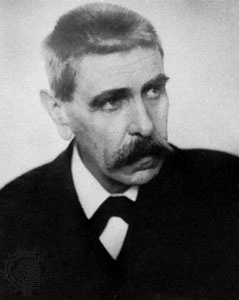Wagner-Jauregg, Julius
Austrian psychiatrist
original name Julius Wagner, Ritter (Knight) von Jauregg
born March 7, 1857, Wels, Austria
died Sept. 27, 1940, Vienna
 Austrian psychiatrist and neurologist whose treatment of syphilitic meningoencephalitis, or general paresis, by the artificial induction of malaria brought a previously incurable fatal disease under partial medical control. His discovery earned him the Nobel Prize for Physiology or Medicine in 1927.
Austrian psychiatrist and neurologist whose treatment of syphilitic meningoencephalitis, or general paresis, by the artificial induction of malaria brought a previously incurable fatal disease under partial medical control. His discovery earned him the Nobel Prize for Physiology or Medicine in 1927.While a member of the psychiatric staff (1883–89) at the University of Vienna, Wagner-Jauregg noted that persons suffering from certain nervous disorders showed a marked improvement after contracting febrile (characterized by fever) infections. In 1887 he suggested that such infections be deliberately induced as a method of treatment for the insane, especially recommending malaria because it could be controlled with quinine. As professor of psychiatry and neurology at the University of Graz, Austria (1889–93), he attempted to induce fevers in mental patients through the administration of tuberculin (an extract of the tubercle bacillus), but the program met with only limited success. In 1917, while occupying a similar post at the University of Vienna, where he also directed the university hospital for nervous and mental diseases (1893–1928), Wagner-Jauregg was able to produce malaria in paresis victims, with dramatically successful results.
Although malaria treatment of the disease was later supplanted largely by administration of antibiotics, his work led to the development of fever therapy and shock therapy for a number of mental disorders. He was also known as an authority on cretinism and other thyroid disorders.
- Henry Nicholas Ridley
- Henry Norris Russell
- Henry, O.
- Henry Of Blois
- Henry of Ghent
- Henry of Hainault
- Henry Ossawa Tanner
- Henry Parry Liddon
- Henry, Patrick
- Henry Paulson
- Henry Peacham
- Henry Peach Robinson
- Henry Pelham
- Henry Percy, 8th earl of Northumberland
- Henry Percy, 9th earl of Northumberland
- Henry Percy Northumberland, 8th earl of
- Henry Percy Northumberland, 9th earl of
- Ŭisang
- Żeromski, Stefan
- Żywiec
- Żółkowski, Alojzy Fortunat
- Žilina
- Živković, Petar
- Žižka, Jan, Count (Hrabě)
- žaltys